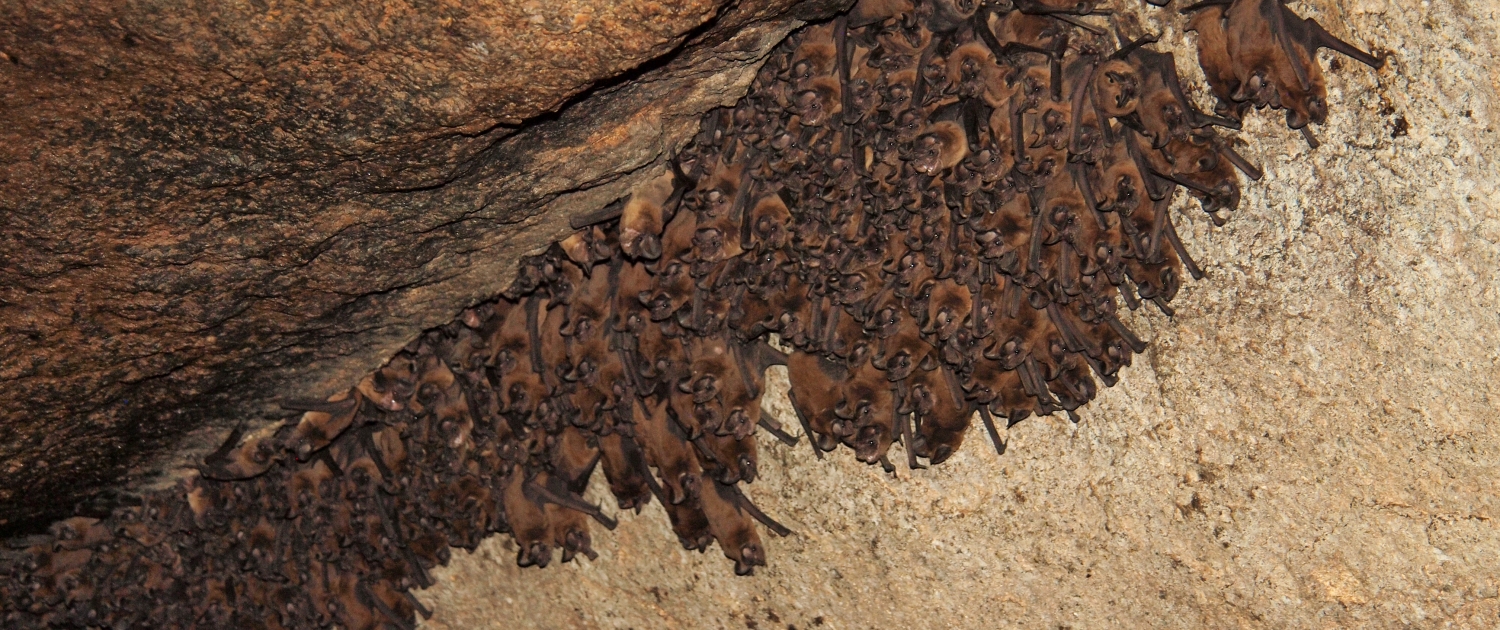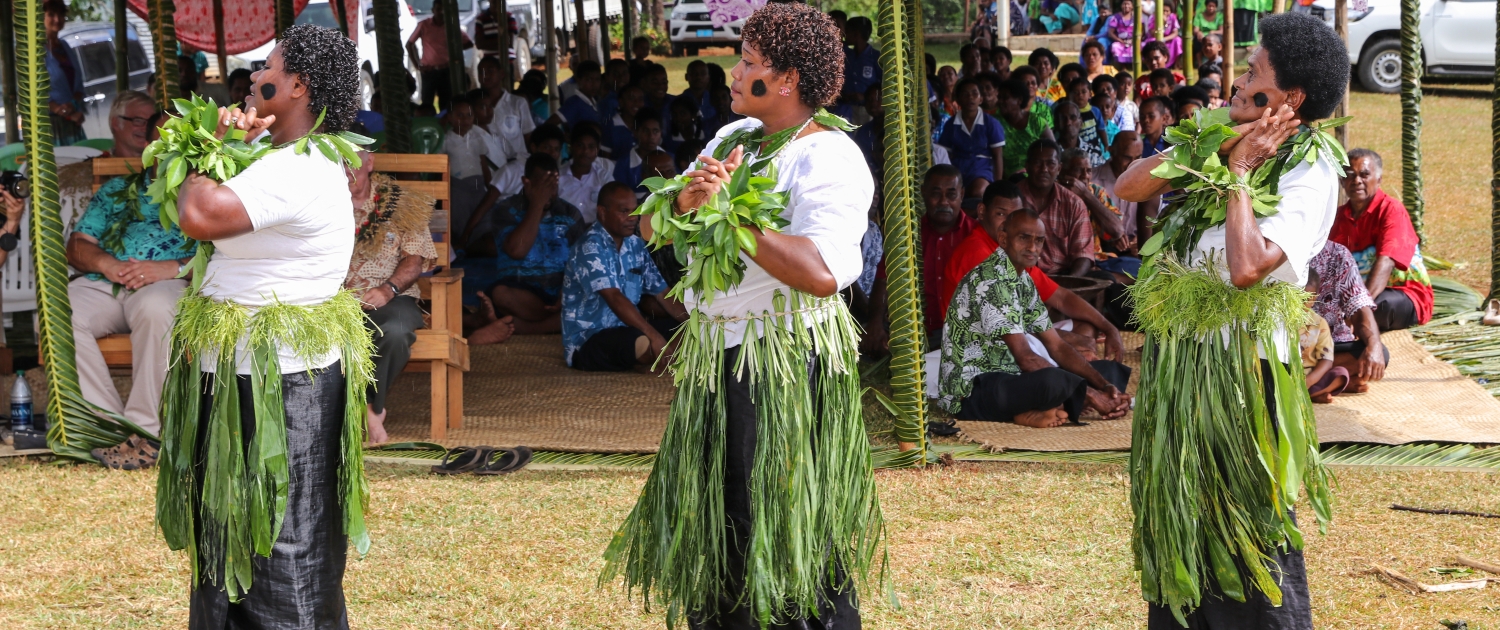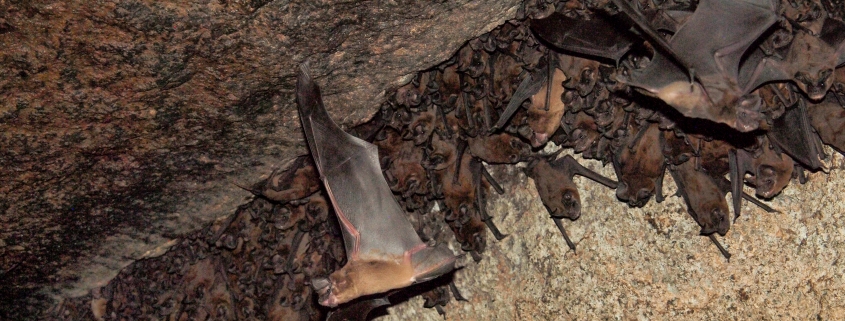Bat Sanctuary Expanded in Fiji
Bats — six species of them, to be exact — are the only mammals native to the Fiji islands. But five of the six bat species in this South Pacific nation face extinction.
Rainforest Trust has worked with its partners, the National Trust of Fiji and Bat Conservation International, since 2017 to create a reserve for one of these species, the Endangered Fijian Free-tailed Bat. Scientists estimate that 95% of the species’ entire population roosts in one cave on the Fijian island of Vanua Levu, near the village of Nakanacagi. This population is threatened by both habitat loss in the forests surrounding the cave and direct hunting of bats for food.

Endangered Fijian Free-tailed Bats in Nakanacagi Cave. Photo courtesy of Bat Conservation International.
To begin protecting the species, Rainforest Trust, the National Trust of Fiji and Bat Conservation International worked together to purchase 20 acres of land covering most of the cave in 2018. This created Nakanacagi Cave Reserve and provided needed protection for the bat’s roost. But this week, the two organizations completed a second purchase of another 34 acres to expand protections for the bat.
This new property adds the rest of the cave system, including the cave mouth, and much of the surrounding forest habitat to the Nakanacagi Cave Reserve. In addition to formal land protection, the National Trust of Fiji is working on outreach in the local community to help build a consensus for conservation. This outreach has already helped curb bat hunting in the area.
“This new purchase solidifies protections for the core of the Fijian Free-tailed Bat’s habitat,” said David Dellatore, Asia-Pacific Conservation Manager. “The Nakanacagi Cave Reserve is a critical step forward in protecting Fiji’s native wildlife.”

Women at the initial dedication ceremony for the Nakanacagi Cave Reserve.
The expansion also helps protect the forest habitat surrounding the cave from logging and burning. These activities weaken the forest and make it more susceptible to erosion and damage from the strong tropical cyclones that move through Fiji. Surveys have also found at least 20 endemic plant species living in the now 55-acre reserve. And while they roost in the cave itself, Fijian Free-tailed Bats feed on insects that live in the surrounding forests. Without those forests, this already-imperiled bat species would lose much of its local food source.
Over the next few years, the reserve will be formalized under the Fiji Forestry Department’s Reserve Demarcation Policy. Bat Conservation International will continue to work on conservation management, including field surveys and reserve protection planning. In addition, the National Trust of Fiji will continue its outreach work, strengthen reserve management and monitor the reserve to ensure its resident bats can survive in perpetuity.
This project was made possible through gifts to the Conservation Action Fund and the support of our partner Bat Conservation International. All donations were matched by SAVES Challenge.
Header Image: The Endangered Fijian Free-tailed Bat. Photo courtesy of Bat Conservation International.




